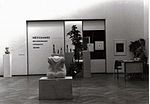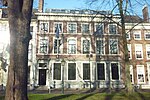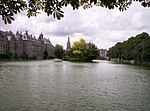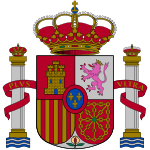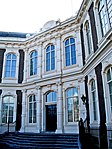The Hague ( HAYG; Dutch: Den Haag [dɛn ˈɦaːx] (listen) or 's‑Gravenhage [ˌsxraːvə(n)ˈɦaːɣə] (listen)) is a city and municipality of the Netherlands, situated on the western coast facing the North Sea. It is the administrative and royal capital of the Netherlands and its seat of government, as well as the capital of the province of South Holland. It hosts the International Court of Justice and International Criminal Court.
With a population of over half a million, it is the third-largest city in the Netherlands, after Amsterdam and Rotterdam. The Hague is the core municipality of the Greater The Hague urban area, which comprises the city itself and its suburban municipalities, containing over 800,000 people, making it the third-largest urban area in the Netherlands, again after the urban areas of Amsterdam and Rotterdam. The Rotterdam–The Hague metropolitan area, with a population of approximately 2.6 million, is one of the largest metropolitan areas in Europe and the most populous in the country; the area holds the Rotterdam The Hague Airport. Situated on the west coast of the Netherlands, The Hague lies at the southwest corner of the larger Randstad conurbation, one of the largest conurbations in Europe.
The Hague is the seat of the Cabinet, the States General, the Supreme Court and the Council of State of the Netherlands, but the city is not the constitutional capital, which is Amsterdam. King Willem-Alexander lives in the Huis ten Bosch and works at the Noordeinde Palace in The Hague, together with Queen Máxima. Most foreign embassies in the Netherlands are located in the city. The Hague is also home to the headquarters of many Dutch companies, with Shell plc having major offices in the city as well.
The Hague is known as the home of international law and arbitration. The International Court of Justice, the main judicial arm of the United Nations, is located in the city, as are the International Criminal Court, the Permanent Court of Arbitration, the Organisation for the Prohibition of Chemical Weapons, Europol, and approximately 200 other international governmental organizations.

